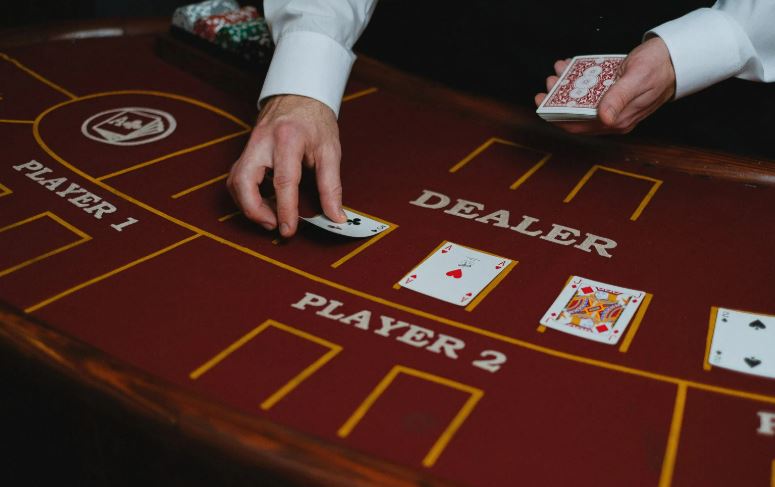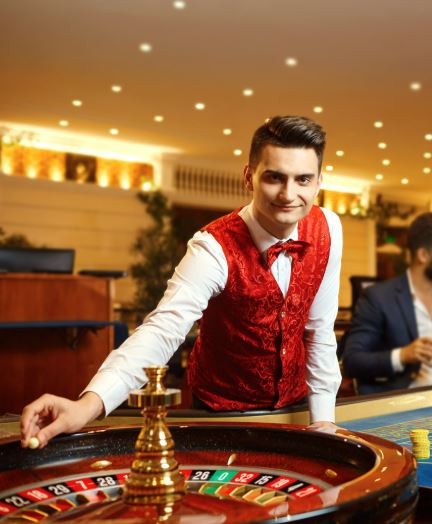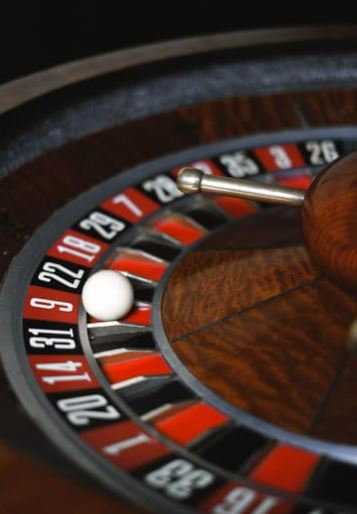Roulette: Is It a Game of Skill or Just Pure Chance?
Roulette is a widely recognised game found in many casinos, both land-based and online. Its appeal often lies in the simplicity of the concept—a small ball spinning around a numbered wheel—paired with the distinctive layout of the table.
In this article, we take a closer look at whether roulette involves any element of skill, or if outcomes are purely determined by chance. If you’ve ever wondered what influences the result of a spin, this article aims to provide a clearer understanding of how the game works. Read on to learn more.
What Makes Roulette Different from Other Casino Games?
Roulette stands apart from other casino games in several ways. The most obvious difference lies in the equipment. A roulette game uses a spinning wheel with numbered pockets and a small ball, which settles in one pocket when the wheel stops. Physical tables in land-based casinos and animated or live dealer versions online both follow this layout.

Unlike card games such as blackjack or poker, roulette does not require players to make decisions based on hands or opponents’ strategy. Instead, chips are placed on a betting layout, choosing options such as red or black, odd or even, single numbers, or groups of numbers. The outcome is decided by which pocket the ball lands in after each spin.
The roulette wheel itself features either 37 pockets (European and French versions) or 38 pockets (American, with an extra 00). This change in the number of pockets shifts the probabilities for every bet. In the UK, the European version with a single zero is more widely seen.
Online casinos may offer different versions of roulette, so it could be worth checking the game rules before placing your bets.
Players should always remember to gamble responsibly and within their means- never wager more than you can afford to lose.
How Does Roulette Work?
Roulette uses a round wheel, a small ball, and a table marked with numbers and colours. In the UK, the most common version has 37 numbered pockets, ranging from 0 to 36. The numbers alternate between red and black, while the single zero is green.
Players place chips on the betting layout to predict where the ball might stop. You can pick one number, a group of numbers, red or black, or whether the winning number will be odd or even. Each type of bet has its own payout rate. For example, a single number bet pays 35 to 1, while betting on red or black pays at even money.
After bets are placed, the dealer spins the wheel in one direction and releases the ball in the other. The ball comes to rest in one of the numbered pockets, and the winning number is shown. All successful bets are paid according to the paytable.
Online roulette comes in two main styles. Live dealer games use a real wheel and ball streamed in real time. Digital versions use a Random Number Generator (RNG) to produce outcomes. Checking which style a casino offers, along with any local features or side bets, could help you know what to expect.
The Role of the Dealer and the Roulette Wheel

The dealer, sometimes called the croupier, keeps the game organised. They accept bets, announce when betting is open and closed, spin the wheel, release the ball, pay winners and clear the layout for the next spin.
The wheel is engineered to a fine standard to avoid predictable patterns. On European tables there are 37 evenly spaced pockets, with numbers arranged to balance the layout. The spin and the way the ball travels are designed so no single factor consistently influences where it lands.
In live online games, real dealers spin real wheels on camera, while digital tables use certified random number generators. Regulated operators are checked to ensure equipment and procedures meet required standards.
Can Player Decisions Influence the Outcome?
Each round is decided by the physical spin of the wheel and the movement of the ball, or by a RNG in digital versions. These processes are set up so the result of a spin cannot be predicted or altered during play.
Your decisions relate to how much to stake and which bets to choose. There are options that cover a single number, groups of numbers, or broader outcomes like red or black. Each carries its own balance of probability and payout. For example, picking a single number in European roulette gives a 1 in 37 chance, just under 2.7%.
Once bets are placed and the wheel is spinning, nothing you do can change where the ball lands. Choosing stakes and bet types is the only part under your influence; the final result remains outside your influence.
What Do the Odds in Roulette Really Mean?
The odds show the chance of an outcome against all other possibilities. On a European wheel with 37 pockets, a single-number bet has a 1 in 37 chance. Red or black covers 18 of the 37 pockets, so the chance is about 48.6%, with a 1 to 1 payout.
As you move to bets that cover more numbers, the probability rises and the payout falls. A “street” bet that covers three numbers has roughly an 8.1% chance and pays 11 to 1. This relationship between probability and payout is what shapes the game’s long-term maths.
It might also be worth thinking about expected outcomes over time. Because payouts are slightly lower than the true odds would suggest, the casino keeps a small percentage on average. For instance, even-money bets on a European wheel win about 18 out of 37 spins.
Checking the paytable before you start could potentially help make sense of the options, especially if a table includes side bets or enhanced layouts.
Play Slots & Online Casino Games
Is There Any Way to Predict Where the Ball Will Land?

In both land-based and online casinos that meet UK Gambling Commission (UKGC) standards, the ball’s resting place cannot be predicted. The design of the wheel, the spin, and the ball release combine to make each outcome independent of the last.
Roulette wheels are checked to ensure there are no patterns or biases. For digital tables, independent testing bodies such as eCOGRA verify that RNGs produce fair results. Some people try to spot trends from recent results, but each spin is treated as a separate event, so the odds for a single number remain 1 in 37 on a European wheel regardless of previous spins.
Live online games often use multiple camera angles and clear audio so players can see and hear the action.
House Edge in Roulette Explained
The house edge is the built-in advantage a casino holds in every game, including roulette. It represents the average percentage of all stakes the casino expects to keep over a long period.
In European roulette, the single green zero means payouts are set slightly below the true odds. A single-number bet pays 35 to 1, yet the actual chance is 1 in 37. This difference creates a house edge of about 2.7%. Put simply, across many spins totalling £100 in stakes, the expected long-term loss is around £2.70. Scale that up and, for example, 1,000 spins at £1 each would be expected to cost about £27 in the long run, though short-term results can vary widely.
Some versions, like American roulette, include a double zero, which increases the total pockets to 38 and raises the house edge.
European vs American Roulette: Does It Affect Your Chances?

European and American roulette differ in ways that affect your chances. European wheels have 37 pockets with a single zero. American wheels add a double zero, taking the total to 38. With more possible outcomes but the same payouts, the American version increases the casino’s edge and reduces the average return to players over time.
In numbers, European roulette carries a house edge of about 2.7%, while American roulette sits at roughly 5.26%. This difference touches every bet on the layout, from single numbers to even-money options like red or black.
In the UK, European roulette is more common, although some online casinos offer both. It could be worth checking the table rules and paytable before you begin, as certain tables may include additional rules for even-money bets that can influence the edge.
Why Roulette Outcomes Are Always Random
Roulette results are not decided by skill or strategy. Each spin is structured to be random and fair in regulated settings.
In a casino, the wheel spins one way while the ball is released the other, and tiny variations in speed and bounce make the final pocket impossible to forecast. Each pocket on a European wheel has a similar chance of being the result, and routine checks are in place to spot any bias.
Online, live dealer tables mirror this with real equipment, while digital games use certified RNGs that are tested by independent agencies. Reading the game details on the site you choose might explain what measures are in place to keep results random.
Play Roulette Online at Dream Jackpot
If you are interested in exploring online roulette, Dream Jackpot offers a range of tables to suit different preferences. You can choose classic European layouts and other popular versions, each with clear rules and paytables shown before you play.
All roulette games at Dream Jackpot are tested for fairness and meet standards set by the UKGC. Guides and game descriptions are available to help you choose the version that suits you best. With round-the-clock support and secure payment options, Dream Jackpot aims to provide a secure and straightforward experience.
If you are ready to discover what makes roulette unique, you can register at Dream Jackpot and browse the full lobby of table games. Always remember to gamble responsibly and within your means.
**The information provided in this blog is intended for educational purposes and should not be construed as betting advice or a guarantee of success. Always gamble responsibly.
*All values (Bet Levels, Maximum Wins etc.) mentioned in relation to these slot games are subject to change at any time. Game features mentioned may not be available in some jurisdictions.





























































